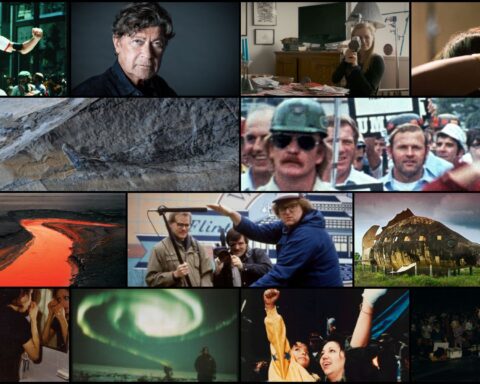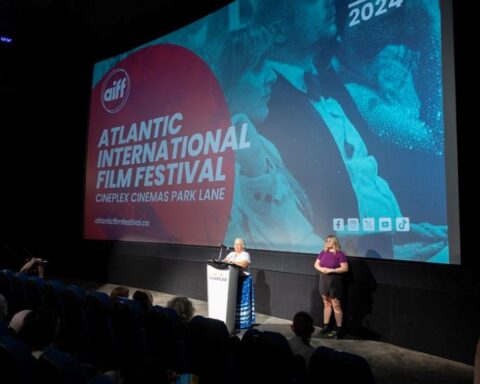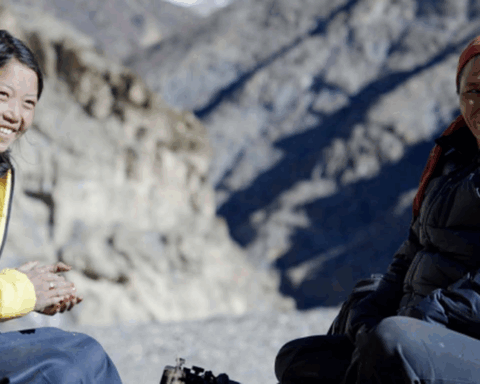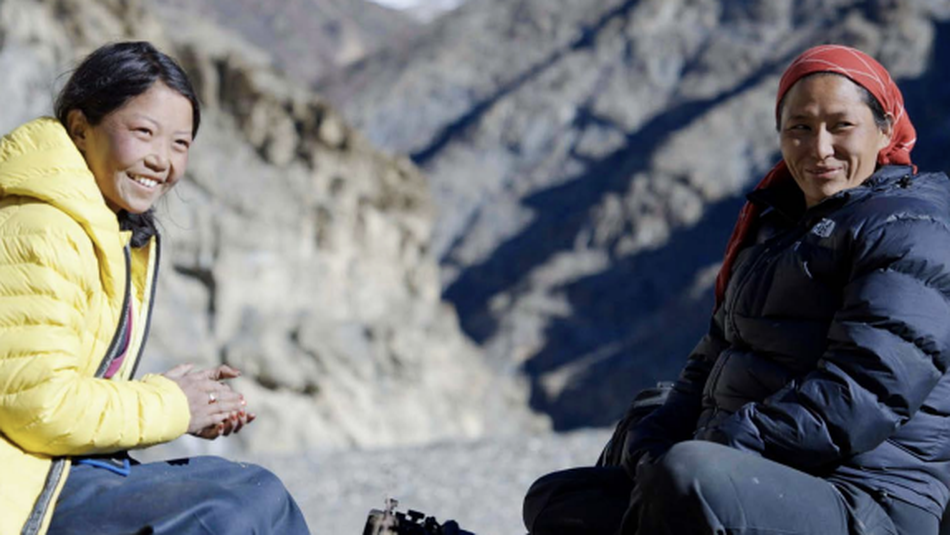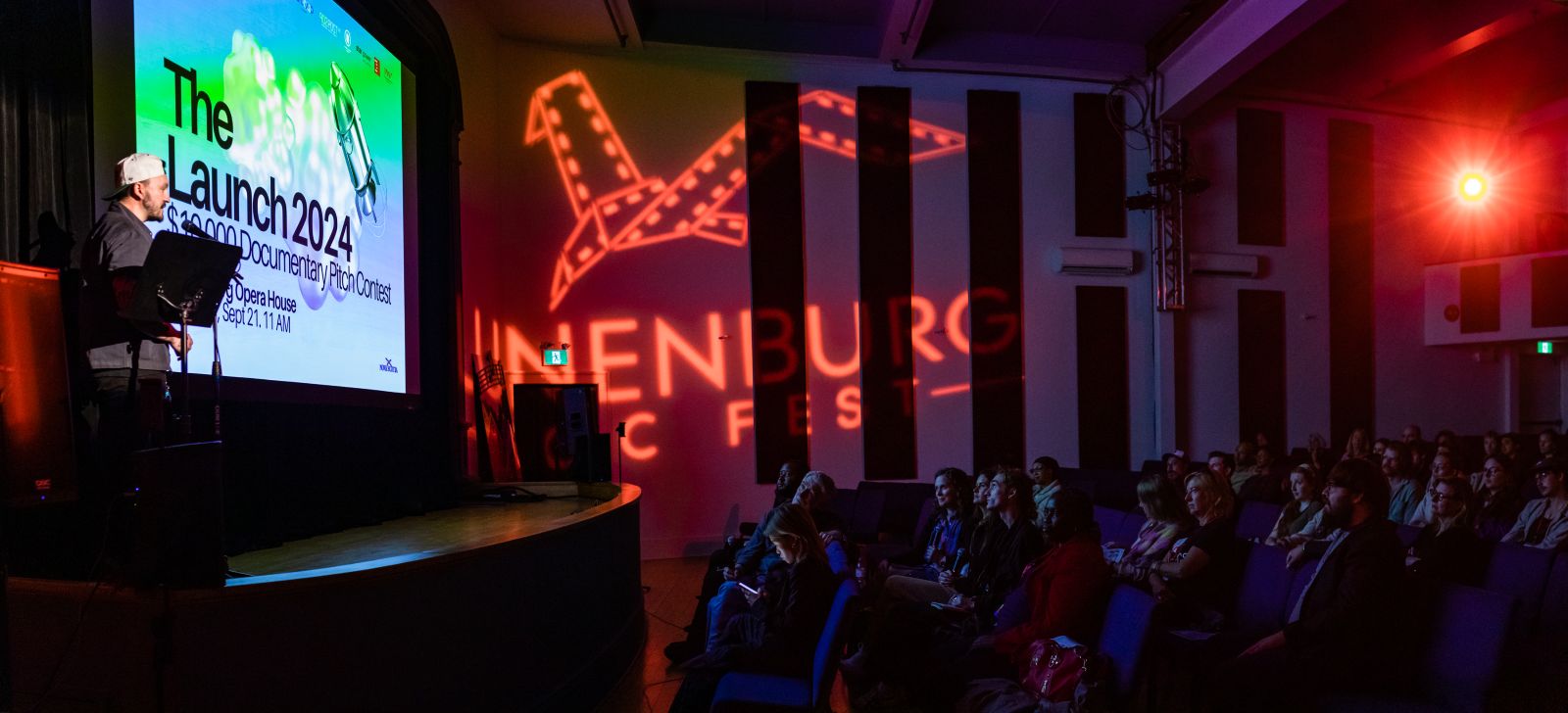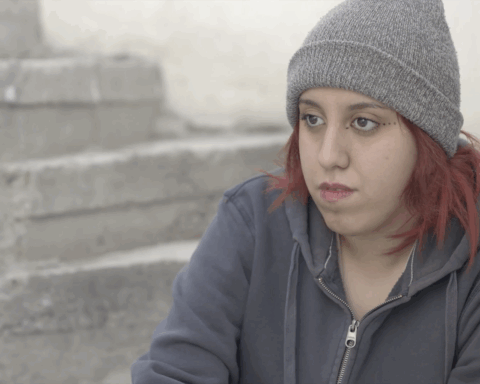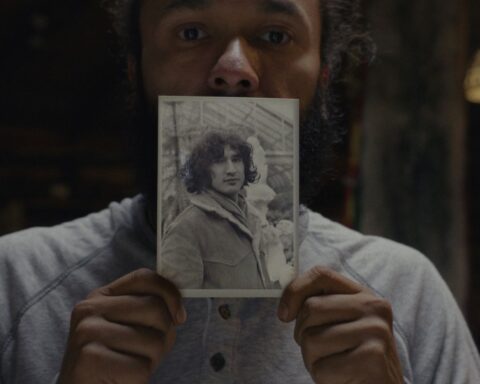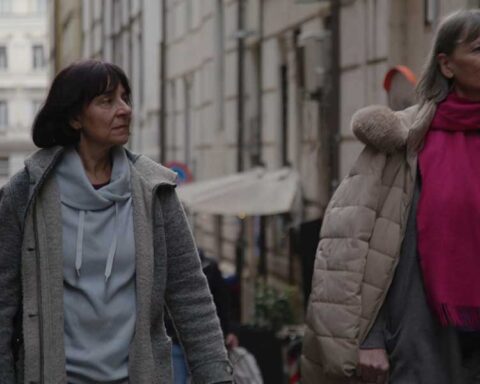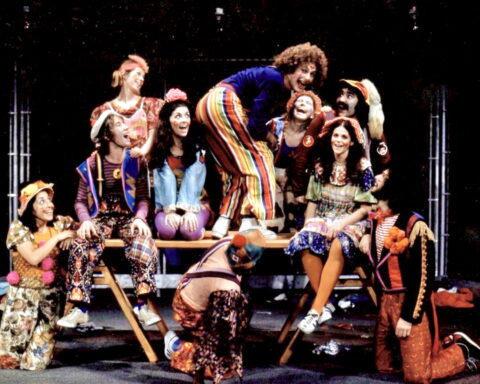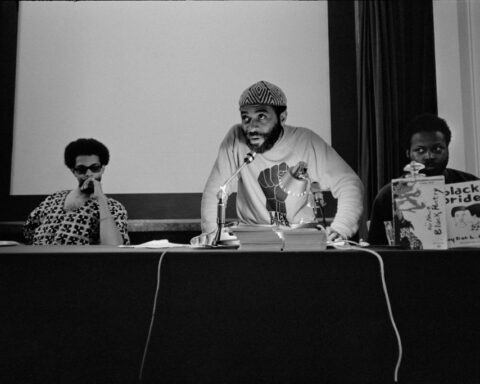The Gimli International Film Festival (GIFF) returns with a chorus line of hit docs from the festival circuit. The Manitoba festival kicks off today with an award winning local hero, Agatha’s Almanac, getting a welcome homecoming after scooping the prize for Best Canadian Feature at Hot Docs for its offbeat take of a green thumb in southern Manitoba. The festival runs July 23 to 27 with a documentary slate that includes some Canadian highlights, Oscar winning actors (in films generation Oscar buzz), and some international discoveries worth a look.
Here are 10 documentary highlights screening at this year’s Gimli International Film Festival.
Agatha’s Almanac
Audiences looking for a homegrown work of art will find it in Agatha’s Almanac. Director Amalie Atkins, offers a lovingly eclectic portrait of nonagenarian Agatha Bock and her passion for gardening. “Shot in wondrously luminous 16mm images by cinematographer Rhayne Vermette, Agatha’s Almanac radiates with the pure joy that these rituals afford Bock daily. The loving colour palette accentuates the ripeness of Agatha’s bountiful and juicy fruits, from succulent red strawberries to eye-poppingly pink watermelons,” wrote Pat Mullen in his review at Hot Docs. “The weathered character of Agatha’s lived-in abode provides aesthetically pleasing contrasts, while her vibrant wardrobe, curated in collaboration with Atkins, ensure that the titular aunt’s personality radiates in every frame.” Read more about Agatha’s Almanac in our current issue.
Coexistence, My Ass!
Here’s an unexpected two birds, one stone scenario at the festival: a comedic delight and a refreshingly nuanced take on the situation in Palestine and Israel. Director Amber Fares’ multiple award winner follows Israeli comedian and activist Noam Shuster Eliassi as she puts her platform to good use and confronts extremely complicated geopolitical conversations through a personal, humorous, and unabashedly activist voice. “This film speaks from the heart,” Pat Mullen said in his review from Sundance. “The direct address approach makes stirring appeals to both the heart and the head. All the while, Eliassi’s sense of humour, imbued with deprecating self-reflection, appeals to viewers on a personal level. What begins as a roast ends as a plea for peace.”
Endless Cookie
Quite possibly the zaniest and most original documentary so far this year, Endless Cookie offers a raucous delight about the power of storytelling. Half-brothers Seth and Pete Scriver join forces as the former seeks to make a film about the latter’s stories. Animation imaginatively conjures the visuals to accompany Pete’s yarns. “The brothers’ great sense of humour, meanwhile, finds repeated punctuation marks in Seth’s eccentric animation,” said Pat Mullen in POV’s review from Sundance. “Endless Cookie runs with the offbeat nature of Pete’s seemingly nonsensical stories. People have balloons for noses. Their heads might resemble found objects, like toilet seats and garlic bulbs, while every inch of their surroundings is detailed with a historical time stamp, like graffiti that screams ‘Free Leonard Pelletier’ or subtly sarcastic Easter eggs for discerning eyes and ears.” Read more about the film in Jason Gorber’s interview with the directors.
Ghosts of the Sea
A haunting story of loss comes in this personal quest from filmmaker Virginia Tangvald. Ghosts of the Sea follows the director as she searches for answers about her brother, who followed their father’s tragic path by dying at sea. Tangvald considers the currents of fate that perhaps claimed one sibling while saving another. “In capturing the parallels between father and son, Tangvald’s film presents a haunting exploration of fractured masculinity. One that clings to a false notion of absolute freedom with no boundaries except for the ones they place on others,” observed Courtney Small in our review at Hot Docs. “Sailing on the dark waters of the past, Ghosts of the Sea builds a poetic blueprint for how the male ego can tangle itself to the anchor of tragedy.”
How to Live
Strike a pose with members of the ballroom scene in Nairobi, Kenya as filmmaker Njoroge Muthoni captures joyous moments of self-expression by the queer community. The film takes audiences inside a safe space where LGBTQ+ bodies are on display and dancers can be vibrant, loud, and unapologetically themselves. How to Live offers a defiant portrait in a nation where same sex marriage is banned, relationships between people of the same sex are not recognized by the state, and intimate acts between queer people remain punishable by law. The film invites the dancers to express their desires and dreams through the ballroom scene—and their right to exist. “Collaboration is incredibly important,” Muthoni said in an interview. “To me, collaboration cultivates community, cultivates understanding, cultivates a cohesiveness of the vision. I am a very actor-oriented director. I like working with actors and letting the camera do its work. I focus on the performance and what the actor is thinking, I don’t try to control it, I try to prompt it. I like to create a really easy intentional vibe on the set, I like for people to be involved and know they are important in the process.”
Marlee Matlin: Not Alone Anymore
Oscar winner Marlee Matlin shares her story about becoming a reluctant Deaf rights advocate and fighting for accessibility in the wake of her breakthrough performance in Children of a Lesser God. She sees her recent hit with CODA as a full circle moment as co-star Troy Kotsur joined her in the winners’ circle, but the doc asks why Hollywood can’t adapt quickly enough to be accessible for all. “This intimate and insightful self-portrait goes beyond the usual celebrity formula to offer a necessary case study in representation. Matlin shares her frustration that she barely received the same consideration as other actors even though she achieved the highest honour in the industry,” wrote Pat Mullen in POV’s review from Sundance. “People often use the saying of putting one’s money where one’s mouth is, but perhaps Matlin’s story is one of recognizing the future in one’s hands.” Check back this week for our interview with Matlin and director Shoshannah Stern!
Siksikakowan: The Blackfoot Man
A visually striking and lyrical portrait of masculinity among First Nations communities, Siksikakowan: The Blackfoot Man observes quotidian interactions among men: team sports, chores, and after hours play. This slice of life vérité study by Sinakson Trevor Solway, an audience award winner at imagineNATIVE earlier this year, offers an intimate study of the measure of a man and what it means to shape one’s perspective when markers of masculinity are weighted with history. “It’s not simply the actions, but the words of these individuals that Solway teases out that go beyond what’s often portrayed on screen,” noted Jason Gorber in his review from Hot Docs. “There’s an immediacy and intimacy in what the director is able to show, peering behind what’s commonly hidden or simply ignored in favour of broader, more simplistic visions of what life on the ‘rez’ is truly like.”
Snow Leopard Sisters
Two Nepalese women, Tenzin and the elder Tshiring, make a pact to preserve the rare snow leopards that surround their farming community. The giant cats prove natural predators to goats that sustain farmers, by Tenzin and Tshiring understand that the beautiful creatures are worth preserving. The women join forces to save the wildlife and, in turn, confront the patriarchal status quo and defy tradition. “Told entirely through the narration of Tshiring and Tenzin, the film offers an honest insight into their experiences as women on a quest traditionally reserved for men,” says Nidhil Vohra in his review of the documentary. “For Tenzin, the apprenticeship is a means of escape from the shackles of patriarchy, after her father’s imprisonment and her elder sister’s untimely demise forces her to drop out of school while her family finds an eligible groom for her. Tenzin’s reluctance to get married solidifies during her mentorship with Tshiring, whom she views as a typification of the boundless possibilities accessible to her through a path of education and hard work.”
Stop Making Sense
Stop Making Sense is perhaps the ultimate concert doc thanks to Jonathan Demme’s ability to harness visually the energy and offbeat nature of the Talking Heads. The film has become a staple among retro screenings after its restoration debuted at the 2023 Toronto International Film Festival. It’s not the same as it ever was: It’s better. “Thanks to a brand new restoration,” wrote Jason Gorber in his review, “the film remains nothing short of awe-inspiring. Previous home video releases have been sufficient to introduce its power to audiences who weren’t lucky enough to see the film during its theatrical run, but this, my friends, is a whole other beast. The assets were clearly in good shape, and everything from the banal monotone of the grey suits through to the electric reds that backlight the band later in the production, come across and almost psychedelic in their intensity.”
The Track
Audiences looking for an upbeat and visually dynamic sports movie should head on over to The Track. This engaging documentary observes members of the Bosnian luge team as they train for the Olympics. Their stomping ground is the somewhat decaying luge track from the 1984 Games in Sarajevo. The track, marked by cracks and graffiti, serves a striking symbol for the history that scars the region, but also the hope for a new generation as they seek to repair the landmark and, in turn, make their community proud. “In capturing the obstacles, both personal and sports related, the young men and their coach face over the course of numerous summers, Sidhoo constructs a fascinating meditation on the lingering impact of war. The reverberations of the past echo loudly to this day for a community still trying to figure out how to properly heal,” Courtney Small wrote in his review at Hot Docs. “Managing to be equally engaging and touching, The Track is a true crowd-pleaser in every sense of the word.”
Vikor
Viktor portrays an experience of wartime with artful subjectivity. The film observes Ukrainian war photographer Viktor Korotovskyi, who captures images of soldiers and civilians defending the nation against Russia’s invasion. Viktor is Deaf and his hearing disability complicates his desire to fight for Ukraine. However, director Olivier Sarbil conveys Viktor’s perspective of being in the thick of battle with a uniquely sonic layering that gives audiences a sense of what it’s like to be Deaf in a battle zone. The film features a striking sound mix from the team who designed the audio for Sound of Metal. “The idea was to create organically a sound for the Deaf world that helped the audience dive into the inner life of Viktor and also to understand what’s happening in his body,” Sarbil told POV in our interview back at TIFF. “The collaboration started at the early stage of the filmmaking. Even when I was in production, I was already in touch with the sound design team. It’s difficult for me because I have to do the sound by myself when I’m on the ground, but we were constantly in collaboration with those guys until the mix. The sounds play a crucial role in the film.”





